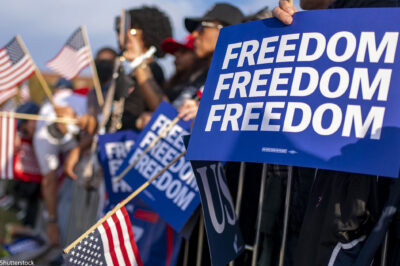
Criticism of what Electronic Arts game demonstrates the digital divide experienced by the 19 million Americans who don't have broadband access and those who do?
Which state will finally allow DREAMers, federally authorized to live and work in the United States, to get their driver's licenses?
How many times did the government refuse to release information requested under the Freedom of Information Act in 2012?
By what percentage did Maine reduce the population in its solitary confinement Special Management Unit in the past four years?
Which state sends the most kids to adult state prisons than any other state in the nation?
SimCity and the Digital Divide
After almost a decade, Electronic Arts released a new SimCity title last week, which has drawn critical praise for the game itself and widespread condemnation for extensive EA infrastructure issues that are preventing many purchasers of the game from playing. You see, SimCity requires a persistent broadband connection to the internet, even when playing single player, and the game's servers are having difficulty handling the load.
The always-on requirement (for any software that otherwise should be able to run locally) is troubling for First Amendment defenders: it leaves behind those without access to the internet and feeds the "digital divide." As the internet evolves, broadband access becomes ever more important for Americans to take full advantage of their First Amendment rights.
Victory! Alabama Lets DREAMers Drive
Alabama officials have announced that young immigrants who came to the country as children—also known as DREAMers—will be allowed to apply for state driver's licenses. The decision affects an estimated 10,000 to 20,000 DREAMers who stand to benefit from the federal government's Deferred Action for Childhood Arrivals ("DACA") program.
Government Increasingly Invoking National Security to Circumvent FOIA
The government is increasingly relying on a national security pretext to bolster its secrecy claims, an Associated Press report released this week reveals. Analysis conducted by the news agency shows that the Obama administration cited legal exemptions to deflect requests for records under the Freedom of Information Act more often in 2012 than in any previous year. According to the AP report, to justify the withholding of information, the government cited exceptions under FOIA more than 479,000 times last year, a 22 percent increase from 2011.
The Change in Maine: The Pine Tree State Leads the Way on Solitary Confinement Reform
In March 2009, Atul Gawande wrote in the New Yorker that successful solitary reform in England had left fewer prisoners in "extreme isolation" in that entire country than in the state of Maine. Four years later, Maine has reduced the population of its solitary confinement Special Management Unit (SMU) by over 70 percent. While the sting of being singled out may have motivated some, Maine's reforms were actually the result of a seven-year effort that is documented in a new report out this week from the ACLU of Maine, Change Is Possible: A Case Study Of Solitary Confinement Reform In Maine.
The Sad State of Solitary in Florida: Is There Hope for this Human Rights Violation?
Prison conditions, particularly conditions of solitary confinement, are often, by definition, hidden from public view. This week, the world peered into our prisons and jails when the Inter-American Commission on Human Rights(IACHR) held a hearing on human rights and solitary confinement in the Americas. The ACLU of Florida and Florida Institutional Legal Services submitted testimony to the IACHR describing the solitary confinement of children and the prisoners with mental disabilities incarcerated in Florida prisons and jails.
Learn more about your civil liberty rights: Sign up for breaking news alerts, follow us on Twitter, and like us on Facebook.




